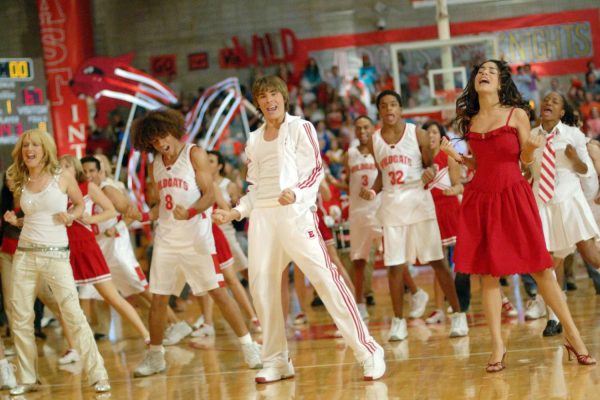What Senioritis Tells Us About Education
It’s that time of year again for 12th graders. The sun sets earlier each day, the weeks stretch on, and the stubborn snow on the ground refuses to melt. There’s a tickle in your throat, a cloudiness in your vision, a restlessness in your limbs. If you relate to any of these symptoms, you may be suffering from a common case of Senioritis. The Oxford Dictionary defines Senioritis as “a supposed affliction of students in their final year of high school or college, characterized by a decline in motivation or performance.” While these feelings are widely accepted as typical during students’ final year of High School, what do they tell us about education as a whole?
After 12 years of schooling, some students have developed a certain jive that often guarantees success: Memorize, pass, forget, repeat. As stated in the 2019 book In Search of Deeper Meaning, “[Teachers] pretend to teach, and [students] pretend to learn.” The end goal for many teenagers is to receive high enough grades to get into a college of their choosing. For others, it is simply to finish high school before either joining the workforce or pursuing another passion. The point is, the final goal is to climb over the mountain that is upperclassmen hood before entering the real world. This is where many feelings of Senioritis stem from. 12th grader Nyla Scarber states, “Students feel this way because lots of us have already been accepted into college, and things like grades and extracurriculars were just a way to get there. At a certain point, you ask yourself, ‘Why am I even doing all this if I’ve reached my goal?”’
And that is a reasonable question, for what would be the point of completing unnecessary work when you’re on track for life after high school? However, this mindset highlights a problem that quietly looms over education; perhaps learning is no longer a priority for students. In this seemingly “blow-off” year, it is revealed that when the only thing motivating a student’s academic success is college, then that success is virtually meaningless. Sure, on paper, a high GPA may assume a teen’s advanced intelligence, yet in many cases, it is simply a display of their determination to achieve good grades. 11th grader Charley Burns states, “There have been times where I left a class with an A, but absolutely no retained knowledge on the subject.” This once again proves that academic achievement does not always measure academic growth.
This doesn’t just include participating in class but in after-school activities as well. Senior Shi’Hid Stevenson expresses, “It feels like students convince themselves that certain extracurriculars are for their enjoyment, but would they be doing them if it didn’t look good on their college applications?”. Junior Nadia Ceaser adds on, “Several times I thought about taking electives that were more for fun, like art, but I felt the pressure to take more academic classes.” Throughout years of education, clubs, sports, and organizations have always been referenced as students’ escape, a way that kids can get involved in things that genuinely interest them. However, often this, too, is merely a pressure placed upon teens to appeal to colleges. This fact indicates that no matter how it may appear, there is always a layer of authenticity on the underbelly of a high school student.
There is even more to notice when observing a high schooler’s Junior year. Many consider 11th grade to be the hardest in K-12, but why is that? Junior Izzy Lyskawa says, “[Juniors] need to complete the ACT and SAT, start our college hunt, build up our resumes, all while dealing with the looming pressure that the grades we earn this year will be seen by colleges.” With that being said, there is nothing exceptionally harder about the typical Junior course compared to Seniors classes, but that is not why underclassmen dread their 11th year. What’s necessary to examine are the intense expectations placed on students at this time. This pressure is not to learn the most, nor to engage in fruitful material, but to perform the best. According to Berkley students, passing a class is not the same as understanding the curriculum. The fact that the second to last year of high school, and not the final, is the most anticipated and important speaks to how much high school education prioritizes adherence to college expectations. If the goal was for high schoolers to continuously learn through K-12, the pressure would not be placed on a year as seemingly insignificant as the 11th.
With this logic, what makes someone’s college experience any different? While some would argue that college allows people to explore their interests more deeply, due to the current academic system, it seems students will never learn for the sake of learning. Perhaps University is just another stepping stone for new adults to cross before settling for a job. Is this a loop that high-achieving students will be forever sprinting in?
As we examine how upperclassmen act, the increasingly worrying undertones are hard to ignore. The common theme found in the hardest-working juniors, the laziest seniors, to the struggling college students is a shared desire for success. They want to move on, conquer their systems, to do a good job. When looking at Senioritis from a different lens, it reveals the game that students and faculty play in education. Personal learning growth has been shoved to the back of school’s minds, with academic success being rewarded over everything else, and perhaps that is the real sickness plaguing schools.
.






